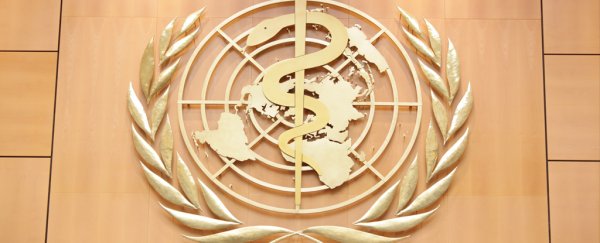The World Health Organisation (WHO) is an agency within the United Nations (UN) that funds and coordinates international programs that promote health and wellbeing, monitor disease, and track global health statistics.
Formally established with a constitution in April, 1948, the organisation's earliest priorities included managing the spread of infections such as malaria and tuberculosis and improving nutrition and maternal health. Since then it has widened its scope to monitor and coordinate efforts to treat a variety of existing and emerging conditions that plague humanity.
The WHO was pivotal in collaborations that led to the complete eradication of smallpox in the 1970s. Similarly, it has played a key role in reducing the spread of polio by 99 percent, with action plans in place to eliminate measles through widespread vaccination programs.
The organisation's primary headquarters is based in Geneva, Switzerland, with six regional headquarters located around the world. Its body consists of 194 member states of the UN, and a small handful of 'observer' states which are entitled to participate in the organisation's programs.
Who pays for the WHO?
The organisation's annual multi-billion dollar budget is mostly covered by voluntary contributions from private organisations such as the Bill & Melinda Gates Foundation.
Obligatory dues are also paid by its membership, though they make up a relatively small part of its overall funding.
In early 2020, US president Donald Trump controversially announced a freezing of its dues after accusing the organisation of severely mismanaging the COVID-19 outbreak in Wuhan, China, resulting in a global pandemic. The US announced withdrawal of its membership the following July, initiating a process that would take a year to become effective.
The US contributes around 15 percent of the WHO's total budget. It's unclear how removal of its funding and participation would impact on organisation efforts to monitor disease.
Who started the WHO?
The seeds of the World Health Organisation are reported to have been planted when diplomats met in San Francisco to form the United Nations in 1945.
Norwegian physician and civil servant Karl Evang is said to have proposed the idea of a new health organisation while meeting colleagues Szeming Sze – an aide to the Chinese Foreign minister – and Geraldo De Paula Souza of Brazil for lunch.
Sze took the suggestion to his superior and was granted approval to put together an official declaration for a conference that would create the organisation.
All topic-based articles are determined by fact checkers to be correct and relevant at the time of publishing. Text and images may be altered, removed, or added to as an editorial decision to keep information current.
